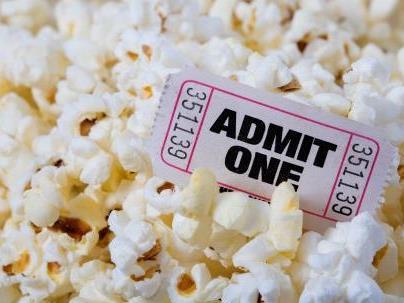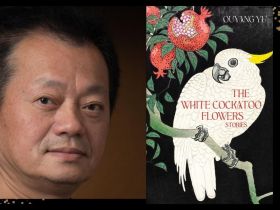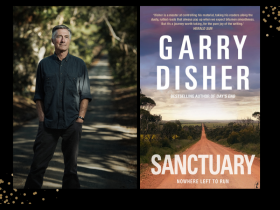Image: supplied
When I recently read about a book that peaked at number two on The New York Times best-seller list I thought how frustrated the author must have been to have just missed out on the top spot of the most coveted literary chart in the world. Then my own novel, an ebook, was listed for pre-order on Amazon. It was ranked number 687,047 in the Kindle store. Suddenly number two didn’t seem so bad.
The web is awash with authors old and new trying to wrestle readers’ attention away from NetFlix and Angry Birds, but nobody seems to have quite figured out how. An information session with my publisher on social media and ebook discoverability boiled down to this: try everything. But when asked what was most effective, they couldn’t really say.
Melbourne academic Dr Simone Murray told Radio National a few weeks ago that authors are still trying to figure out how to commodify social media. The comment was part of a broader discussion about book trailers. Murray didn’t know if these were effective either, but nevertheless, they are becoming a popular phenomenon.
The trailer for Gary Shteyngart’s memoir Little Failure, for example, has attracted 52,347 views on YouTube since it was posted about a year ago. When you consider that mega-star Justin Bieber’s autobiography – that’s autobiography, “100 per cent official” – sold about 50,096 copies the year it was released (according to Nielsen data published in the Guardian) the case for the book trailer seems strong.
Moving 110,000 hardcopy literary units globally would have been enough to put an author in the top 100 sellers in 2012, according to the Nielsen data. Shteyngart’s trailer was seen by about half that number. Hilary Mantel’s Wolf Hall was plucked off book-seller’s shelves by 113,770 people in 2012 (a bit more than two trailer’s worth). Jodi Piccoult’s Sing You Home was bought by about three Shteyngart-trailers’ worth (153,145 people).
But when you take into consideration his authorial pedigree (Super Sad True Love Story, Absurdistan) and the fact and James Franco, Rashida Jones and Jonathan Franzen starred alongside Shteyngart in the funny, four-minute clip, the number of hits suddenly seems quite low.
Furthermore, Random House Australia’s Marketing and Publicity director Brett Osmond said there is little evidence to indicate that their use drives book sales.
Next to expertly produced film industry trailers, book trailers are usually poorly produced and can look clunky and amateur in comparison, Osmond writes on the Random House blog. Trailers like Shteyngart’s are the exception, not the rule. Incidentally it’s great, take a look:
Shteyngart is an established, decorated author, so it is difficult to say how much his YouTube clip increased awareness of his memoir, if at all. But he seems to have faith in the effectiveness of trailers, having appeared in a five-minute preview for debut novelist Jennifer Miller’s book, The Year of the Gadfly.
The Gadfly trailer has garnered 4,112 views on YouTube. It is a modest number compared to Shteyngart’s, but a very respectable one for a first-time fiction writer. Miller told Radio National she had hoped the clip would go viral but she was pleased with the few thousand hits it did receive. She also found it a useful asset when she was emailing people to generate publicity.
Like Miller, my goal when creating my trailers was simply to have something to show people. My previous literary works are known only to my long-suffering blood relatives, so the trailer has become a nifty way of quickly conveying the gist of my ebook. Yes, it is a marketing tool, but it’s really about showing people what they can expect from the novel so they can decide if it’s something they would like to read. Nobody has ever heard of me or my ebook before so I thought it would be worthwhile creating something alerted them to the fact we exist.
My ebook clip conveys the tone of the story and is, most importantly, easily shared on social media. I have been touched to see it re-tweeted and shared by not only friends and colleagues but a few bloggers who write about my chosen genre. I was warned that as a debut, digital author I can expect to sell only a few hundred copies of my book, despite having the backing of one of the big-five publishers. With that in mind, the 200 views my first trailer racked-up in two weeks seem like a good result, even if many of them were from the aforementioned, long-suffering, blood-relatives. If 50 of the people who saw my trailer had previously never heard of me, that is a good start.
The figure – my Kindle ranking – of 687,047 sounds like a made-up number I mashed into my computer keyboard to illustrate the towering list of books ahead of me. But I assure you it is a very real obstacle. If you’re an emerging writer trying to find readers who will enjoy your work, I refer you to the earlier advice from my publisher: try everything.
What I learned from making my trailer:
- Keep it short. Mine both run longer than a minute. I should have trimmed them
- Choose an illustrative excerpt, don’t summarise it or provide reviews
- Seek other people’s opinions
- Text animation is a great way to keep production costs down without looking to amateurish





